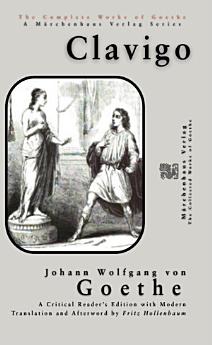Clavigo
Giới thiệu về sách điện tử này
In Clavigo, the action unfolds among characters of Madrid and Seville, combining personal drama with a touch of political intrigue. Clavigo, a passionate young poet, abandons his sweetheart Marie (the sister of the writer Beaumarchais) when he receives a tempting diplomatic appointment. The woman he betrays – courageous and dignified – confronts Clavigo and demands justice, leading to tragic consequences. Goethe was influenced here by the rules of French theater: the play moves efficiently from scene to scene, focusing on sharp dialogue and moral conflict rather than grand spectacle. The emotional stakes are high, but contained by a compact structure. Notably, Goethe assigned the hero a fate that was quite grim (including an on-stage death), which was daring for the time. The crisp, emotional intensity and concise plotting of Clavigo set it apart from Goethe’s earlier legendarily loose Werther – it is almost clinical by comparison, yet it still carries the feeling of passion frayed by consequences.
In the context of Goethe’s oeuvre, Clavigo is often seen as a transitional piece. It did not bring him the fame of Werther, nor did Goethe regard it as his best work, but it does show him testing new forms. Its historical importance lies partly in its timing: written just before he embarked on his famous Italian journey, it represents the last drama of his youth. Modern readers and scholars note that it introduced European elements into Goethe’s subject matter, and that it served as a personal catharsis – after Clavigo’s lukewarm reception, Goethe felt compelled to reflect (and ultimately set out to see the world). As a result, while Clavigo itself has not retained the cultural impact of some of his other works, it remains an interesting early tragedy showing Goethe experimenting with classical restraint and sober psychology amid the flux of 1770s literature.
This critical reader's edition offers a fresh, modern translation of the original manuscript in Fraktur (the old German script), designed to help any curious reader delve into Goethe's works, using clear, contemporary language and straightforward sentences to illuminate his complex ideas. It includes supplementary material providing autobiographical, historical, and linguistic context to this 18th century work- including an afterword by the translator discussing Goethe’s history, impact, and intellectual legacy, alongside an index of the philosophical concepts he explored—with a focus on Romanticism and Classicism. Included is a comprehensive chronological list of his published writings and a detailed timeline of his life, highlighting the personal relationships that profoundly influenced his philosophy.










